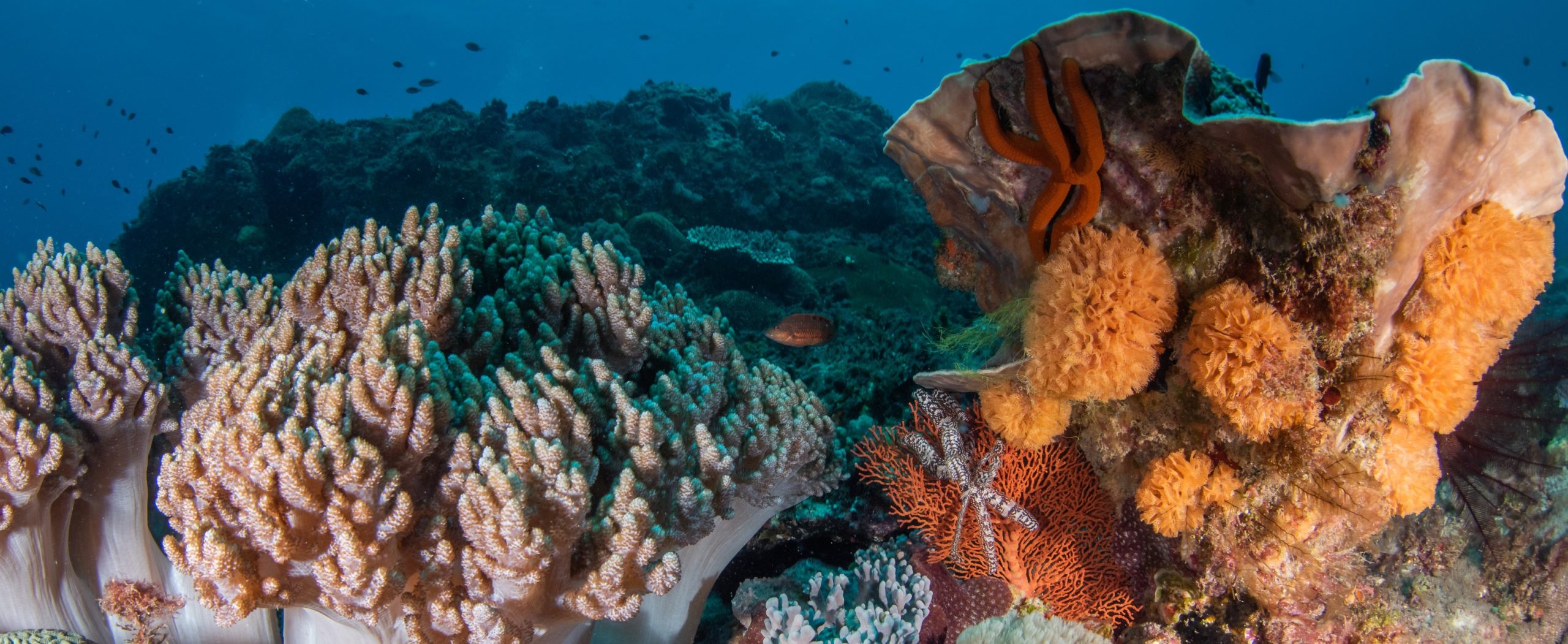Some dramatic consequences of climate change are caused by shifting species interactions and associated changes to trophic structure and energy flow. In coastal ecosystems, the relative abundance of feeding guilds indicates dominant energy sources
sustaining food webs. Here, we use a space-for-time substitution to investigate
potential climate change impacts on trophic structure and energy flow in reef fish
communities. We investigated latitudinal and seasonal patterns in the biomass distribution of five trophic groups across subtropical to temperate latitudes (29 to 44°S) in eastern Australia. Along western boundary currents, temperatures are increasing up to three times faster than the global average, making them ideal for studying climate change impacts. Using 10 years of Reef Life Survey data, we investigated potential determinants of fish biomass and community composition with generalized additive mixed models. Biomass decreased towards higher latitudes, from 220 g/m2 in the subtropics to 13 g/m2 in the south. Dominant trophic group also changed latitudinally, with herbivores and omnivores dominating lower latitudes (~30°S), zooplanktivores at mid-latitudes (~35°S) and benthic invertivores at higher latitudes (~40°S). Biomass varied seasonally, with lower latitudes experiencing a 3.2-fold increase between spring and autumn, while variation at higher latitudes was 1.9-fold. We found strong evidence that factors linked to latitude and seasonality are important determinants in the distribution of fish trophic structure. As climate-driven species redistributions accelerate in the 21st century, expected poleward shifts in trophic structure include overall increases in fish biomass linked to enhanced herbivory at mid-latitudes and increased planktivory at higher latitudes.
